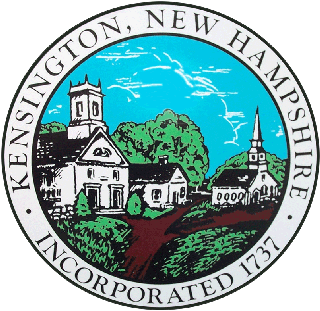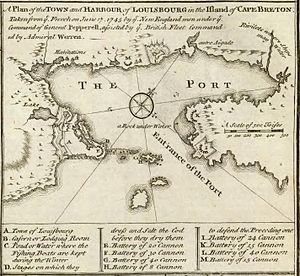amesbury
Ezekiel Worthen, third of that name, was born in Amesbury, Massachusetts on March 18th, 1710. His Grandfather, Ezekiel (1), was one of the first settlers of that town. Ezekiel's wife was Hannah Currier, she too was born in Amesbury, on June 26, 1711 to William and Rachel Sargent Currier. Her great grandfather Richard Currier was one of the first settlers of Salisbury and Amesbury. Ezekiel and Hannah married in Amesbury in 1732 and began to build their life there. But new land was opening up in New Hampshire, the Indian threat was subsiding and after one hundred years of colonization, the coastal towns of Massachusetts were getting crowded.
kensington
Ezekiel Worthen, third of that name, was born in Amesbury, Massachusetts on March 18th, 1710. His Grandfather, Ezekiel (1), was one of the first settlers of that town. Ezekiel's wife was Hannah Currier, she too was born in Amesbury, on June 26, 1711 to William and Rachel Sargent Currier. Her great grandfather Richard Currier was one of the first settlers of Salisbury and Amesbury. Ezekiel and Hannah married in Amesbury in 1732 and began to build their life there. But new land was opening up in New Hampshire, the Indian threat was subsiding and after one hundred years of colonization, the coastal towns of Massachusetts were getting crowded.
kensington
 |
| Town Seal |
His parents, Ezekiel (2) and Abigail Carter Worthen, had moved to Chester, New Hampshire, as had his brother Thomas and his family. Ezekiel (2) in his will left his land that he received from John Carter his father in law to his son Jacob and he remained in Amesbury. He, Ezekiel, left his sons Thomas and Ezekiel (3) only money as according to his will he had already settled substantial amounts of land, etc. on them and set Ezekiel up as a joiner. To his son Ephraim he left his best clothes and his house and property in Chester. Ephraim was also to provide for his mother Abigail for the rest of her life.
man about town
Ezekiel (3) became involved in town business. In a deed dated 20 July 1740 he was called a "Gentleman". He was also described as a joiner or house carpenter. In 1748 he was selectman for Kensington. He also did stints as constable, moderator of meetings and surveyor of highways. Ezekiel however is best remembered for his military exploits, in fact in an article written by Samuel Copp Worthen he is called "The Warrior of Kensington".
When the Massachusetts Bay Colony was first establishing itself each town organized it's own militia. Training bands were formed and gun powder was gathered and stored to use in defense of the town. When the threat from Indians decreased, especially in the larger coastal towns and cities, Ranger Companies were formed to defend the frontier. These men were paid volunteers. At one time there were nine Ranger Companies. Later during the French and Indian Wars the Rangers fought along side the British Regulars and local militia.
ensign
The New Hampshire Militia served in all of the Colonial Wars and as a member of the Militia Ezekiel Worthen rose from the rank of Ensign to Major. The rank of Ensign is not used in today's Army, the Navy, however, retains the rank. An Ensign was the lowest commissioner officer rank, below that of Lieutenant. Ensign Ezekiel Worthen saw action in 1745 at the first siege of Louisbourg, the capital of Cape Breton and strongest French fort at that time. This was during what was called in Europe, the War of the Austrian Succession, but in New England it was known as "King George's War. The colonial militia took and held the fort until 1746 when they were relieved by regular British Troops. This was quite a feat for the Colonists. Ezekiel was discharged on 20 June 1746.
 |
| Louisbourg |
revolution
Ezekiel represented Kensington at a meeting in Exeter whose delegates choose the men who would represent New Hampshire in the General Congress in Philadelphia. After the battle of Lexington in April of 1775 the town chose Ezekiel to be on the Provincial Committee of Public Safety in Exeter. In 1778 he was chosen to represent Kensington at the Convention in Concord.
During the war Ezekiel was responsible for drawing up plans for Fort Sullivan and Ft. Washington and Clark's Point. In 1775,with the rank of Major, he relieve General Sullivan and took command of the Portsmouth defenses. Ezekiel and his sons survived the war and lived to celebrate their freedom from Great Britain.
 |
| Map of the Ports and Forts of New Hampshire |
Ezekiel and Hannah Currier had the following children:
Isaac b. 1733 Amesbury, died young
Jacob b. 1734 Amesbury d. 1801 Ancestor Lt. in the American Revolution
Rachael b. 1737 Amesbury d. unknown marriage unknown
Sarah b. 1739 Kensinston d. unknown marriage unknown
Isaac b. 1741 Kensington possibly Corporal in the Revolution
Abigail b. 1743 d. unknown
Ezekiel (4) b. Kensington 1746 d. 1803 Amesbury m. Anna Collins Lt. in the Rev.
Samuel b. Kensington 1748 d. 1796 Candia m. Sarah Clifford
Enoch b. Kensington 1750 d. 1833 Kensington m. Jemima Quimby Corporal in the Rev.
Hannah b. 1752 m. John James 1775 d. 1831 Deerfield New Hampshire
Mary b. 1754
Thomas b. 1765 m. Susanna Adams died in Corinth Vermont 1851
rip Hannah Currier Worthen died in 1792 and Ezekiel died the following year. They are buried in Kensington, New Hampshire.
My Worthen Line with links:
George Worthen and Margery Hayward
Ezekiel Worthen and Hannah Martin
Ezekiel Worthen and Abigail Carter
Ezekiel Worthen and Hannah Currier
Jacob Worthen and Mary Brown
Rachel Worthen and Enoch Rowell
"The Kensington Warrior", Samuel Copp Worthen
Old Families of Salisbury and Amesbury, Hoyt
History of Candia
HIstory of Old Chester
Fold3 Revolutionary War Records




1 comment:
I will be making a trip back to New Hampshire in the year 2013 to research the local history of my family. Thank you for all this information.
DV Seattle, WA
Post a Comment